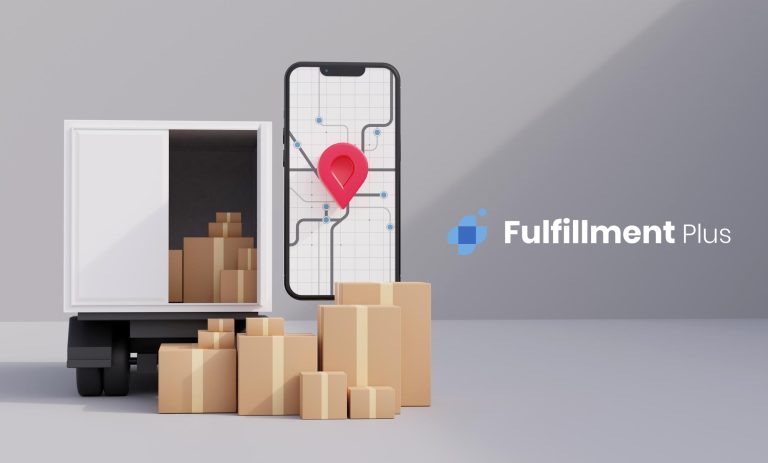Elevating Customer Satisfaction: The Crucial Role of Delivery Experiences
In the ever-evolving landscape of e-commerce fulfillment, customer satisfaction stands as the linchpin for success. As businesses vie for the attention and loyalty of consumers, the significance of delivery experiences cannot be overstated. In this blog, we delve into the pivotal role that delivery experiences play in shaping customer satisfaction, exploring the various facets that contribute to a positive or negative outcome.
I. The Evolution of Customer Expectations:
The e-commerce fulfillment has undergone a significant transformation, driven by changing customer expectations and technological advancements. Initially valued for its convenience, allowing customers to shop from home, e-commerce fulfillment has evolved to meet the demands of a more sophisticated clientele.
The prevalence of mobile devices has further influenced customer expectations. As the majority of online shopping now occurs on smartphones and tablets, a seamless and user-friendly mobile experience is essential. Responsive websites, intuitive apps, and mobile-optimized checkout processes are imperative for e-commerce platforms to cater to the needs of their tech-savvy clientele.
Additionally, personalization has emerged as a key driver of customer satisfaction. A one-size-fits-all shopping experience is no longer acceptable. Customers now expect recommendations based on past purchases, personalized promotions, and tailored content that resonates with their preferences. Artificial intelligence and machine learning technologies analyze vast amounts of customer data, enabling e-commerce fulfillment platforms to offer increasingly personalized experiences.
II. Speed: A Double-Edged Sword:
Speed, a defining characteristic of the modern e-commerce industry, operates as a double-edged sword. On one hand, consumers, accustomed to instantaneous gratification, demand swift order processing and delivery. The concept of next-day or same-day delivery, once a luxury, is now an expectation. E-commerce giants invest heavily in logistics and fulfillment to meet this demand, making speed a competitive differentiator.
However, the relentless pursuit of speed can pose challenges. Rushed order fulfillment may lead to errors, impacting the accuracy of deliveries. Additionally, overemphasis on speed may compromise the quality of the overall customer experience. It’s essential for e-commerce businesses to strike a delicate balance between speed and precision. Focusing solely on expediting the process without ensuring accuracy and transparency can result in dissatisfied customers. Therefore, in the quest for speed, it is crucial for the industry to prioritize efficiency, accuracy, and transparent communication to maintain customer satisfaction and trust. Balancing the speed of delivery with a commitment to service excellence is the key to wielding this double-edged sword effectively in the dynamic landscape of e-commerce fulfillment.
III. Transparency Builds Trust:
In the e-commerce industry, transparency is the bedrock upon which trust is built. Providing customers with real-time updates, clear communication about their orders, and insights into the entire purchasing journey foster confidence. When e-commerce platforms are transparent about pricing, shipping, and potential issues, they not only meet customer expectations but also demonstrate integrity. This openness establishes a sense of trust, crucial for customer loyalty in an environment where reliability and credibility are paramount. Ultimately, transparency in e-commerce fulfillment operations is not just a practice; it is a powerful tool that forges lasting connections between businesses and their customers.
IV. Communication is Key:
In the dynamic realm of e-commerce, communication stands as the linchpin that can either elevate or undermine the entire customer experience. From the moment a customer places an order to the delivery of the package, transparent and timely communication is paramount. Real-time updates, order confirmations, and shipping notifications not only keep customers informed but also alleviate uncertainties, fostering a sense of trust.
Effective communication doesn’t merely involve conveying information; it’s about creating a dialogue. Responsive customer service channels play a pivotal role in addressing queries, resolving issues, and ensuring a seamless experience. Businesses that prioritize accessible and helpful communication channels empower customers to voice concerns, providing an avenue for prompt resolution.
Moreover, proactive communication during unexpected events, such as delays or inventory issues, showcases a commitment to customer satisfaction. Honesty about challenges and transparent communication about solutions can turn a potentially negative experience into a positive one.
In a world where attention spans are fleeting, concise and clear communication is key. E-commerce fulfillment platforms that master the art of conveying information efficiently, while maintaining a human touch, are more likely to build lasting customer relationships. Ultimately, in e-commerce, communication isn’t just a means of conveying information; it’s the bridge that connects businesses with their customers, fostering trust and satisfaction.
V. The Last-Mile Conundrum:
The last-mile conundrum in e-commerce fulfillment encapsulates the formidable challenge of delivering packages from distribution centers to the customer’s doorstep. This final leg of the delivery journey is often the most complex and crucial, as it directly shapes the customer’s perception of the entire e-commerce fulfillment experience.
The intricacies of the last mile involve numerous variables, from the behavior and professionalism of delivery personnel to the condition of packages upon arrival. In this stage, the e-commerce fulfillment provider must navigate unpredictable urban landscapes, traffic bottlenecks, and varying customer availability, all while striving to maintain delivery speed and accuracy.
The last-mile challenge is further compounded by the rising expectations of consumers for quick, reliable, and convenient deliveries. To tackle this conundrum, companies are increasingly turning to innovative solutions, including route optimization algorithms, real-time tracking technologies, and alternative delivery methods such as drones and autonomous vehicles.
Successfully addressing the last-mile conundrum not only enhances customer satisfaction but also plays a pivotal role in building brand loyalty. E-commerce fulfillment providers that invest in optimizing this final stretch of the delivery process are better positioned to thrive in a competitive market where the last impression is often the most enduring.
VI. The Role of Technology:
Technology plays a pivotal role in shaping the landscape of the e-commerce industry, revolutionizing how businesses operate and consumers engage with online commerce. Advanced technologies have become integral in enhancing efficiency, improving customer experiences, and driving overall industry growth.
Artificial Intelligence (AI) and machine learning algorithms analyze vast datasets, providing personalized product recommendations and targeted advertising. Chatbots powered by AI facilitate instant customer support, ensuring seamless interactions. These technologies not only enhance customer satisfaction but also streamline operational processes.
E-commerce platforms leverage data analytics to gain insights into consumer behavior, preferences, and trends. This data-driven approach aids businesses in making informed decisions, optimizing inventory management, and tailoring marketing strategies to target specific audiences.
VII. Personalization: A Customer-Centric Approach:
Personalization in e-commerce represents a transformative shift towards a more customer-centric approach, redefining the traditional shopping experience. As businesses navigate the digital landscape, tailoring interactions to individual preferences becomes paramount. By leveraging customer data and advanced analytics, e-commerce platforms can curate personalized product recommendations, enhancing the overall shopping journey.
A key facet of this approach lies in understanding and anticipating customer needs. From personalized email campaigns to targeted promotions, businesses can create a tailored environment that resonates with individual preferences. This not only cultivates a sense of connection but also fosters brand loyalty as customers feel seen and valued.
Moreover, the customization of user interfaces based on browsing history and purchase behavior elevates the online shopping experience. Seamless navigation and relevant content contribute to a more engaging and efficient journey, reducing decision fatigue and increasing the likelihood of conversion.
In the era of information overload, personalization stands as a beacon of relevance, ensuring that customers are presented with products and content that align with their interests. As e-commerce fulfillment continues to evolve, the success of platforms increasingly hinges on their ability to embrace and excel in the art of personalization, creating a virtual shopping experience that feels uniquely tailored for each customer.
VIII. Challenges and Solutions:
In the dynamic landscape of e-commerce, businesses face a myriad of challenges that demand strategic solutions. One significant hurdle is the ever-evolving cybersecurity threat, as the digital realm becomes a prime target for cyber attacks. Ensuring robust encryption, regular security audits, and educating both consumers and employees on best practices are critical solutions to safeguard sensitive information.
Another challenge lies in the logistics of last-mile delivery, where businesses strive to balance speed and accuracy. Implementing advanced tracking systems, optimizing routes through data analytics, and investing in innovative technologies, such as drones and autonomous vehicles, present viable solutions to enhance the efficiency of the delivery process.
Moreover, the intense competition in the e-commerce arena requires businesses to differentiate themselves. Crafting personalized experiences through data-driven insights, leveraging social media for targeted marketing, and embracing emerging technologies like augmented reality for interactive shopping experiences are strategies to stand out in a crowded market.
Supply chain disruptions, exacerbated by global events, pose additional challenges. Implementing resilient supply chain management, diversifying suppliers, and embracing agile methodologies enable businesses to navigate uncertainties effectively.
The e-commerce sector’s challenges are multifaceted, but with strategic solutions encompassing technology adoption, cybersecurity measures, and agile practices, businesses can not only survive but thrive in this ever-evolving landscape.
IX. Case Studies: Success Stories and Lessons Learned:
In the ever-evolving landscape of e-commerce fulfillment, case studies serve as invaluable insights into the success stories and lessons learned by businesses navigating this dynamic terrain. One notable example is the rise of Amazon Prime. The cautionary tale of a major retailer highlights the perils of neglecting delivery experiences. Failing to invest in efficient logistics and transparent communication led to delayed deliveries and dissatisfied customers. This case underscores the interconnectedness between operational excellence and customer satisfaction, emphasizing that neglecting one can have a cascading effect on the other.
These case studies collectively underscore the importance of adapting to changing consumer demands, leveraging technology for operational efficiency, and prioritizing the customer journey. Success stories inspire emulation, while tales of missteps provide invaluable lessons. In the fast-paced world of e-commerce, businesses that heed these lessons, innovate and prioritize the delivery experiences will undoubtedly position themselves for sustained success and customer satisfaction.
X. The Impact on Brand Loyalty and Reputation:
In the vast and competitive realm of e-commerce fulfillment, the impact of customer experiences on brand loyalty and reputation is profound. A positive customer experience doesn’t merely end with a successfully delivered product; it echoes in the customer’s perception of the brand. Brands that consistently deliver exceptional service and exceed customer expectations foster a sense of trust and loyalty.
Brand loyalty, a coveted asset in e-commerce, is cultivated through a series of positive interactions. When customers consistently receive orders on time, encounter transparent communication, and experience hassle-free returns, they are more likely to choose the same brand for future purchases. This loyalty becomes a powerful marketing tool, as satisfied customers become brand advocates, sharing their positive experiences with others.
Conversely, negative experiences can swiftly erode brand loyalty and tarnish a company’s reputation. Delays, inaccuracies, and poor customer service create a ripple effect, leading to dissatisfied customers who are not only unlikely to return but may also share their grievances across social platforms.
In the interconnected world of e-commerce fulfillment, reputation is everything. A brand’s online presence is heavily influenced by customer reviews and ratings. Positive reviews contribute to a favorable reputation, attracting new customers and solidifying the loyalty of existing ones. Negative reviews, on the other hand, can spread rapidly, dissuading potential customers and damaging the brand’s image.
Fulfillment Plus on elevating customer satisfaction
We at Fulfillment Plus, understand the paramount importance of our role in driving customer satisfaction. Our commitment to excellence goes beyond the seamless handling of orders; it extends to crafting an end-to-end experience that leaves a lasting positive impression. Our relentless pursuit of speed, accuracy, and transparency ensures that our clients’ customers not only receive their orders promptly but also remain informed throughout the entire journey.
In optimizing the last mile, we recognize the critical role our delivery personnel play. Through ongoing training and a customer-centric mindset, our team strives to embody the values of reliability and professionalism, turning the last mile into a testament to our dedication.
Technology serves as our ally in this pursuit. From cutting-edge tracking systems to data analytics, we leverage innovation to predict, adapt, and exceed customer expectations. Our commitment to personalized solutions further cements our customer-centric approach, as we understand that each client is unique, and deserving of tailored experiences. We take pride in our ability to transform challenges into opportunities, continuously learning and adapting to the evolving landscape of e-commerce fulfillment. By prioritizing the customer journey, we not only fulfill orders but also contribute to building enduring relationships and fostering brand loyalty. In the realm of fulfillment, we don’t just deliver packages; we deliver satisfaction.
Get in touch with us at 888-256-7790 or click here.







